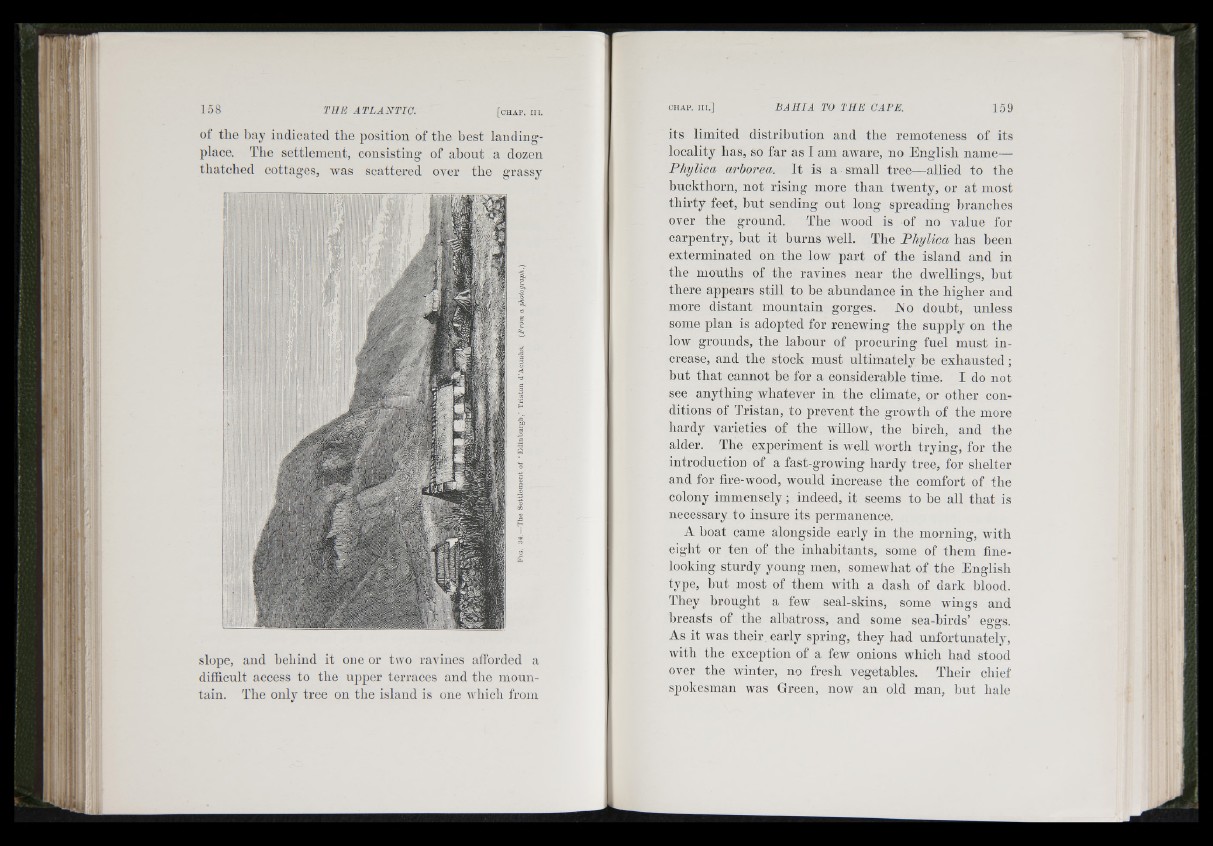
'H
;í
i l i i t
of the bay indicated the position of the best landing-
place. The settlement, consisting of about a dozen
thatched cottages, was scattered over the grassy
slope, and behind it one or two ravines alforded a
difficult access to the upper terraces and the moan-
tain. The only tree on the island is one which from
its limited distrihution and the remoteness of its
locality has, so far as I am aware, no English name—
Phylica arboi-ea. It is a small tree—allied to the
buckthorn, not rising more than twenty, or at most
thirty feet, but sending out long spreading branches
over the ground. The wood is of no value for
carpentry, but it burns well. The Fhylica has been
exterminated on the low part of the island and in
the mouths of the ravines near the dwellings, but
there appears still to he abundance in the higher and
more distant mountain gorges. No doubt, unless
some plan is adopted for renewing the supply on the
low grounds, the labour of procuring fuel must increase,
and the stock must ultimately be exhausted ;
but that cannot be for a considerable time. I do not
see anything whatever in the climate, or other conditions
of Tristan, to prevent the growth of the more
hardy varieties of the Avillow, the hirch, and the
alder. The experiment is well wortli trying, for the
introduction of a fast-growing hardy tree, for shelter
and for fire-wood, would increase the comfort of the
colony immensely ; indeed, it seems to be all that is
necessary to insure its permanence.
A boat came alongside early in the morning, with
eight or ten of the inhabitants, some of them fine-
looking sturdy young men, someAvliat of the English
type, hut most of them with a dash of dark blood.
They brought a fcAv seal-skins, some wings and
breasts of the albatross, and some sea-hirds’ e^a’s
As it was their early spring, they had unfortunately,
with the exception of a few onions whicli had stood
over the Avinter, no fresh vegetables. Tlieir chief
spokesman Avas Green, noAV an old man, hut hale
k’’
•M
: Oi'F.
Ï I
1
'I
; ■ ' ! I
\ '